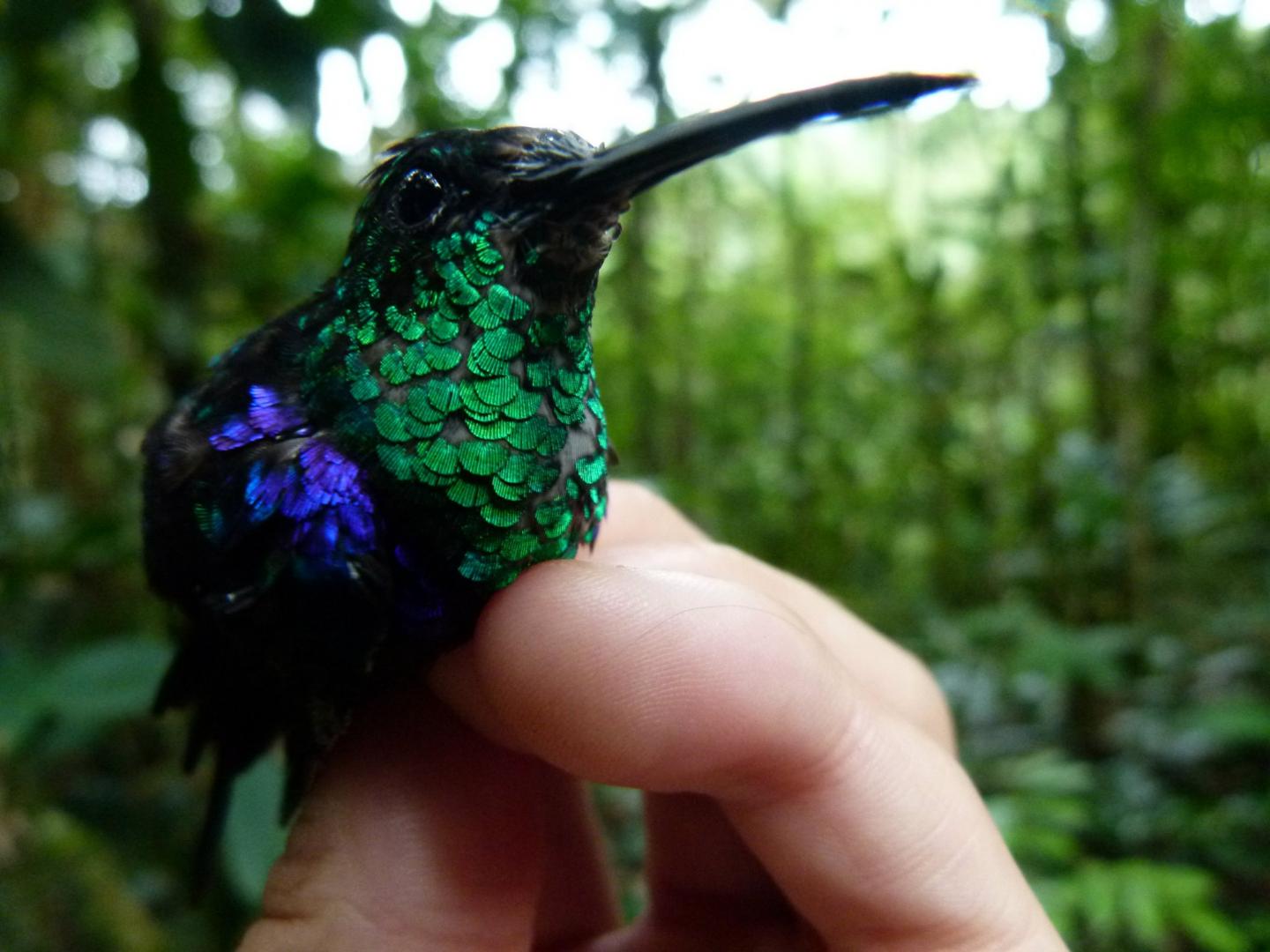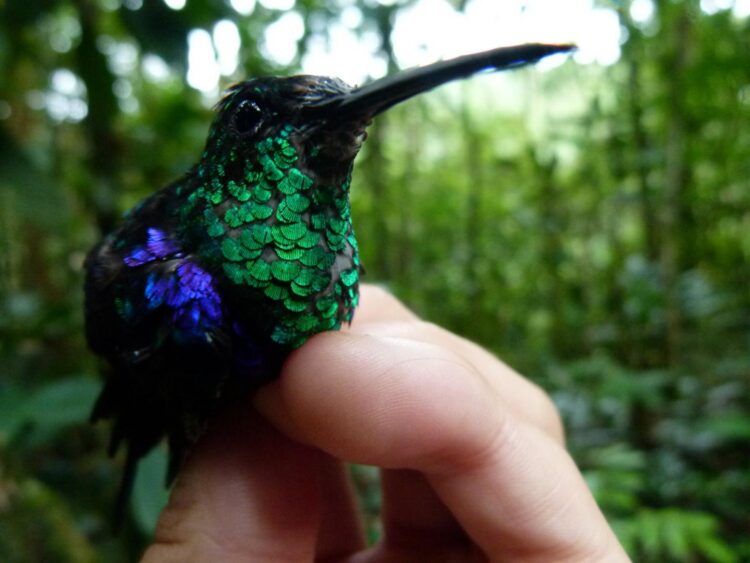
Credit: Pablo Negret
An analysis has found deforestation is severely affecting forest bird species in Colombia, home to the greatest number of bird species in the world.
University of Queensland-led research, steered by Dr Pablo Negret, analysed the impact of deforestation on 550 bird species, including 69 only found in the South American nation.
“Our study has shown an astonishing reduction in bird species habitat,” Dr Negret said.
“One third of the forest bird species in Colombia have lost at least a third of their historical habitat, and that’s just using the most recent data we have available – from 2015.
“Moreover, 18 per cent or 99 species have lost more than half of their historical habitat to date.
“By 2040, we expect this will increase to 38 per cent or 209 species.
“Sadly, many of those species are endemic to the country and are not currently classified as threatened by the International Union for Conservation of Nature, suggesting that there are many unlisted species that face an imminent extinction threat from ongoing habitat loss.”
Dr Negret said the results were concerning but not surprising.
“Deforestation is one of the main drivers of habitat loss for many species in the tropics,” he said.
“We know that deforestation affects thousands of species in these ecosystems, but our attention is usually focused on a tiny fraction – threatened and charismatic species.
“This study provides more data on species previously thought abundant that are actually dwindling – hopefully we can shine a light on them, so they can be recognised as under threat and don’t fall through the cracks.”
The researchers used historical and present satellite forest cover data, while collating spatial information on other variables associated with deforestation patterns.
UQ’s Professor Martine Maron said the research would help predict future habitat loss for already-threatened species.
“This methodology, and the technologies behind it, allow us to identify places where future habitat loss is predicted.
“This means that we can reveal the locations where threatened species are most likely to lose precious habitat, and prioritise their protection.
“And, in a country with growing threats to rich bird diversity, it pays to be ahead of the game.”
The authors hope the Colombian government and NGOs working in this space will use the research to guide conservation of Colombia’s bird species.
###
The study is published in Biological Conservation (DOI: 10.1016/j.biocon.2021.109044).
Media Contact
Dr Pablo Negret
[email protected]
Related Journal Article
http://dx.





